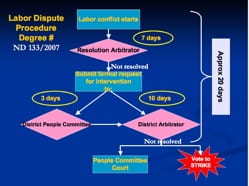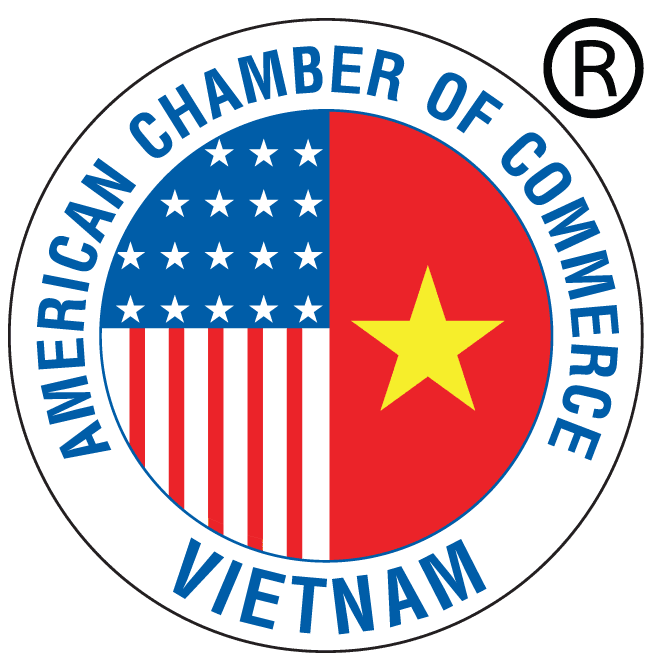Summary
There were widespread strikes with violence that occurred in many FDI factories in Vietnam’s Southern Key Economic Zone in the spring of 2008, just as there were in the spring of 2006. A few years ago, there were 200 strikes in a year. In 2008, there were 200 strikes in the first two months of the year.
 According to one report, at least 541 labor strikes occurred in Vietnam in 2007 involving an estimated 350,000 workers, mostly at FDI factories (73.4% – click chart to left to zoom in).
According to one report, at least 541 labor strikes occurred in Vietnam in 2007 involving an estimated 350,000 workers, mostly at FDI factories (73.4% – click chart to left to zoom in).
449 of those strikes (83%) were in the Southern Key Economic Zone: Binh Duong (216), Dong Nai (123) and Ho Chi Minh City (110).
According to FDI factories’ representatives, there has been little or no government reaction or assistance in mediating or resolving these strikes by helping develop better communication between workers and management of FDI factories. While workers have legitimate problems caused by inflation of 20% per year this spring, the central and local governments need to develop better tripartite cooperation and communication between government, workers and management to address and resolve differences in a constructive and peaceful way.
 According to FDI managers, in every strike that occurred, the workers did not follow the procedures outlined in Chapter XIV, Section 3 of the Labour Code of Vietnam for Collective Labor Disputes Settlement, and in ND 133/2007, which are displayed graphically in the flow chart (click the chart to zoom in).
According to FDI managers, in every strike that occurred, the workers did not follow the procedures outlined in Chapter XIV, Section 3 of the Labour Code of Vietnam for Collective Labor Disputes Settlement, and in ND 133/2007, which are displayed graphically in the flow chart (click the chart to zoom in).
Strikes in Vietnam are being used as the first step in a labor dispute, Instead of being the final step as provided for by the law.
Furthermore, according to FDI managers, the workers also did not follow the procedures for initiating or settling a legal strike as provided for by Chapter XIV, Section 4 of the Labor Code of Vietnam regarding Strikes and Settlement of Strikes.
AmCham and member companies are very interested in working as one party with VCCI as the Employers’ Organization, and cooperating at the national and local level with the Vietnam General Confederation of Labor, MOLISA, and other relevant government agencies , as well as international organizations such as the ILO and donor governments.
We have proposed to work closely with VCCI / VCCI HCM to organize training in industrial relations and dispute resolution for factory-level managers and workers’ representatives, together with provincial- and district-level labor officials. We feel that VCCI and AmCham are considered as the Employers’ Organizations in representing and protecting the legitimate interests of our constituent members. We will cooperate closely with VCCI HCM in the years to come in capacity building, advocacy, and sharing experiences and best practices.
This would be a joint effort of Employers’ Organizations (VCCI and AmCham) working with the Government (MOLISA) and Workers Organization (VGCL) in the Industrial Relations field to develop a Tripartite Partnership between Government, Workers, and Employers, which has proved so successful in the United States (and in Singapore) in successfully resolving labor / management conflict and reducing costly and disruptive work stoppages.
Developing this Tripartite Partnership could make a real contribution to the economic and social development of Vietnam.
Click this link to download the complete Statement at Tripartite Partnership Conference re Industrial Relations in Vietnam, May 27, 2008.
Click this link to download:
VCCI Presentation on Industrial Relations in Vietnam, May 27, 2008 (English).
VCCI Presentation on Industrial Relations in Vietnam, May 27, 2008 (Vietnamese).
